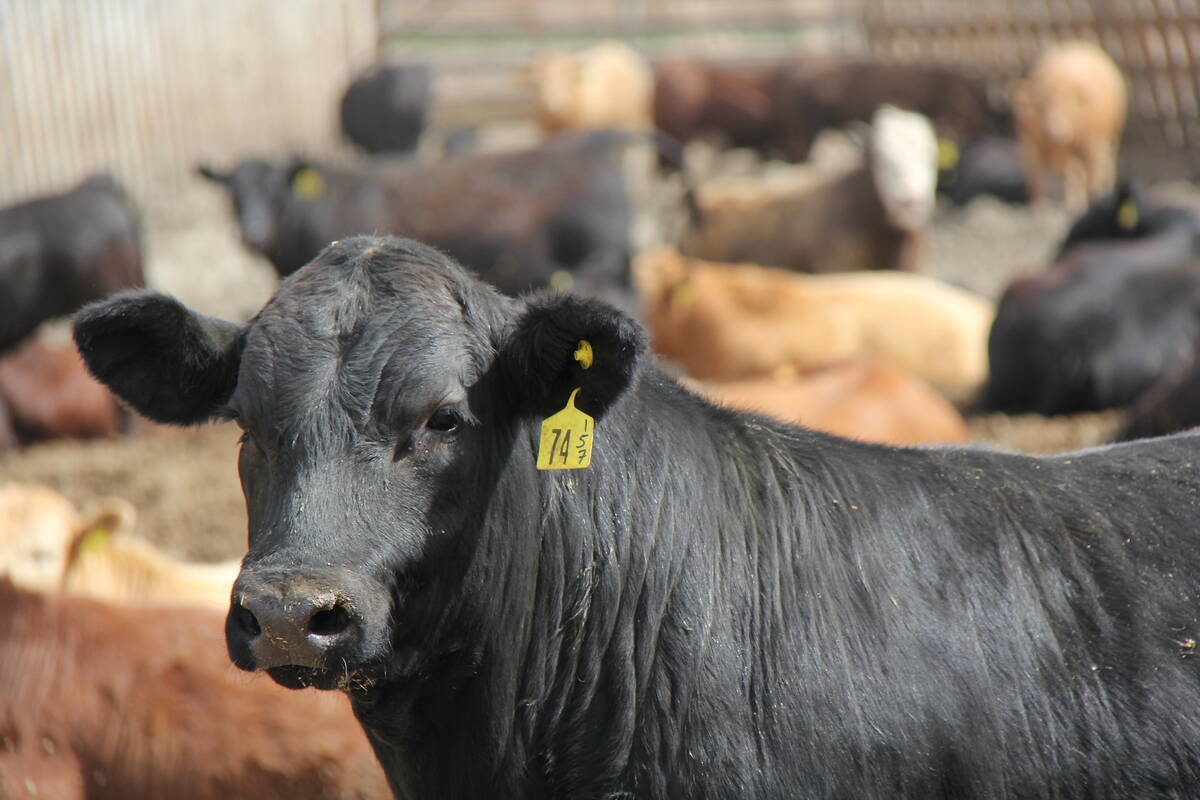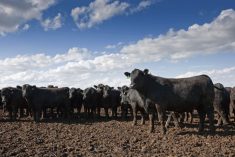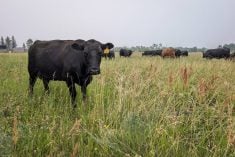A single and apparently isolated case of another influenza variant normally seen in hogs has turned up in a Manitoba resident, the province announced Monday.
Manitoba Public Health on Monday said the H3N2 influenza variant (H3N2v) seen in this case is related to flu viruses that circulate in pigs, noting that while such viruses don’t normally infect people, “sporadic” infections with variants have been known to occur.
The H3N2 case was spotted early this month when a person sought testing after developing an “influenza-like illness,” the province said Monday. The person reported mild symptoms, was tested and then recovered.
Read Also

U.S. livestock: Cattle futures continue downward
Cattle futures on the Chicago Mercantile Exchange were weaker on Thursday, as a lack of fresh news continued to weigh…
Tests in this case were negative for the COVID-19 coronavirus, but later turned up influenza A(H3N2)v through “routine influenza surveillance processes.”
“Based on available evidence, the current assessment is that there is no increased risk to people, with no evidence of sustained human-to-human transmission at this time,” Manitoba Public Health said Monday in a release.
The finding follows the confirmation of one case each of influenza A(H1N2)v and influenza A(H1N1)v in Manitoba in late April — both of which are “rarely seen in humans,” the province said.
The case of H1N2v was just the second identified in Canada, the first appearing last year in Alberta. The two April infections were unrelated, the province said at the time.
The recent detections of these kinds of flu cases could be for “a number of reasons,” the province said. Increased “respiratory surveillance” for COVID-19 and influenza has been occurring during the pandemic.
However, the province said, “it is also possible that there is a true increase in the number of these cases, possibly occurring from exposure to infected pigs or through subsequent, limited human-to-human transmission.”
The H3N2 case “appears to be isolated” and investigations are now ongoing to learn how transmission may have occurred.
In the meantime, the province said, “the current assessment is that there is no increased risk to Manitobans, Canadians or the food supply chain at this time.”
The viruses in these cases “are not a food-related illness (and) are not transmissible to people through pork meat or other products that come from pigs and there is no risk associated with eating pork.”
That said, anyone who works with pigs or poultry, has influenza-like symptoms, and is seeking testing or treatment is asked to identify themselves as an agricultural worker to medical officials — including at COVID-19 testing sites.
Otherwise, people who have contact with pigs should take measures to reduce the spread of influenza viruses between pigs and people, the province said. Among the recommended measures:
- Avoid contact with pigs if you have flu symptoms.
- Do not take food, drink or other items into pig areas and do not put anything in your mouth in pig areas.
- Avoid close contact with pigs that look or act ill or are known or suspected to be sick, and call a veterinarian if such illness is suspected.
- Limit contact with pigs that appear sick. If contact is required, wear personal protective equipment such as protective clothing, gloves and masks that cover the mouth and nose.
- Wash hands often with soap and running water before and after exposure to pigs. If soap and water are not available, use an alcohol-based hand rub.
- Anyone at high risk of complications from influenza should avoid pigs and pig barns.
- If you develop flu symptoms, call a health-care provider and tell them about your exposure to pigs. Influenza antiviral drugs used to treat seasonal flu can also be used against variant influenza virus infections.
— Glacier FarmMedia Network

















